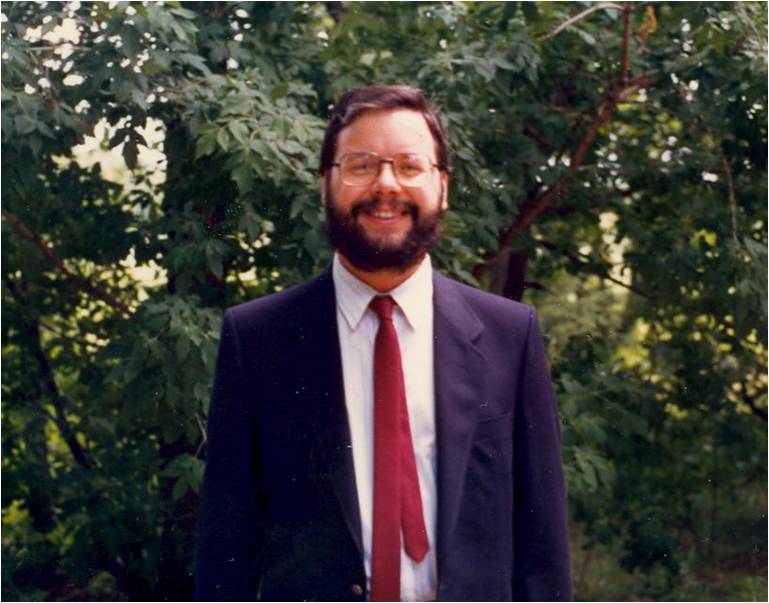 In 1987-88, I spent a great year in Minneapolis as a postdoc at the Institute for Mathematics and its Applications (and this picture of me comes from that time). Every year at the IMA has a special theme, and the theme my year was “Applied Combinatorics”. There were about a dozen of us postdocs that year: 11 combinatorialists, and me, the OR guy, who I guess satisfied the Applied in year’s title. It was a fantastic year. The other combinatorialists were scary-smart and doing amazing things. One of the postdocs was Bernd Sturmfels who was working on Grobner Bases at the time and has gone on to an amazing career in applying algebraic methods in optimization, statistics, and other fields. I look at his list of 190 papers and 15 books and realize what a slacker I am!
In 1987-88, I spent a great year in Minneapolis as a postdoc at the Institute for Mathematics and its Applications (and this picture of me comes from that time). Every year at the IMA has a special theme, and the theme my year was “Applied Combinatorics”. There were about a dozen of us postdocs that year: 11 combinatorialists, and me, the OR guy, who I guess satisfied the Applied in year’s title. It was a fantastic year. The other combinatorialists were scary-smart and doing amazing things. One of the postdocs was Bernd Sturmfels who was working on Grobner Bases at the time and has gone on to an amazing career in applying algebraic methods in optimization, statistics, and other fields. I look at his list of 190 papers and 15 books and realize what a slacker I am!
The year at the IMA was important for my career. It gave me the chance to finish my dissertation papers and move on to new research. I met a great group of people and learned about some aspects of an academic career without being saddled with teaching or administrative duties.
Depending on the year, the IMA may be more or less interesting to operations researchers. Next year (2011-12) looks to be a good one. It is on “The Mathematics of Information”. There are a couple versions of the description of the year. I like the one on the Geomblog:
During the academic year 2011-2012, the annual program at the Institute for Mathematics and its Applications (IMA) at the University of Minnesota will be in the Mathematics of Information. Information, broadly defined, plays an ever increasingly large role in our scientific and technological endeavors, as well as our daily lives. Collectively, we search the web over billions of times per day, we keep our medical records in digital repositories, we share videos and photos over the web, and we listen to music on MP3 players. Our ability to collect, store, and generate vast quantities of data far outstrips our ability to analyze, process, and understand these data. Many scientific, engineering, and medical applications depend on our ability to handle enormous amounts of complex information. Network engineering involves massive datasets at high speeds, medical imaging generates large data with intricate geometric relationships, and astronomical observations include data at different wavelengths or spectral bands. Our current technology and scientific tools for information lag far behind our ability to collect enormous amounts of data, our need to analyze that data as efficiently as possible, and, finally, our ability to use that analysis to make sound, timely decisions.
“Sound, timely decisions” is what operations research is all about.
The postdoc deadline was January 7, 2011 but applications will be considered until February 4, 2011. So get a move on if you are interested!
There is also funding for more established researchers to spend time at the IMA. It is a great way to get started in new research directions and to rub off the administrative barnacles that attach if you stay at one place too long.
Love the picture!
I second Mary’s comment!